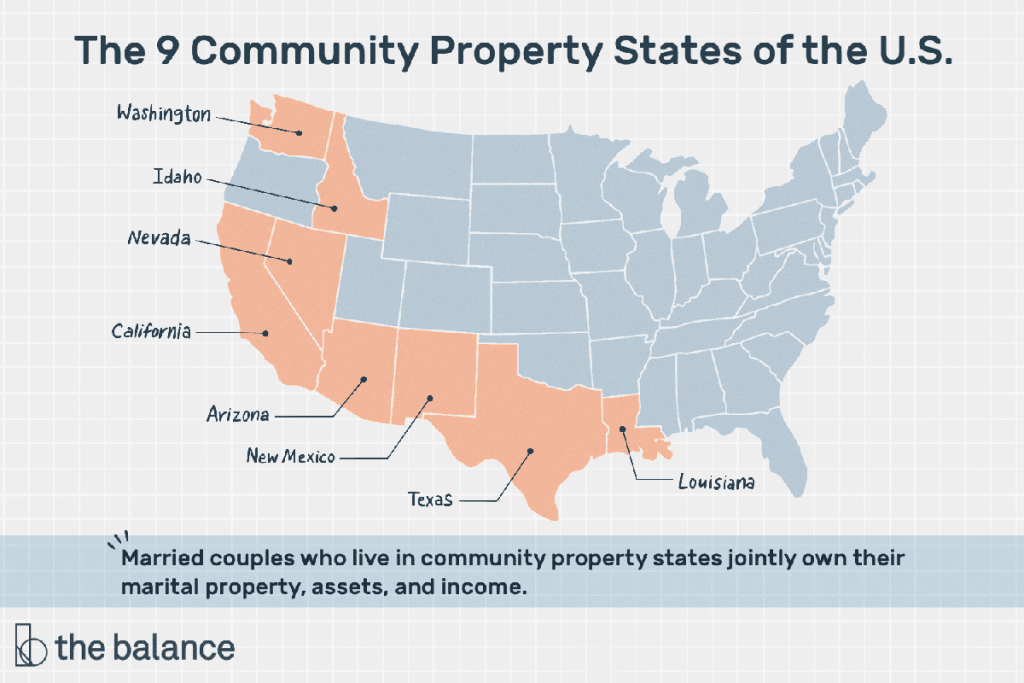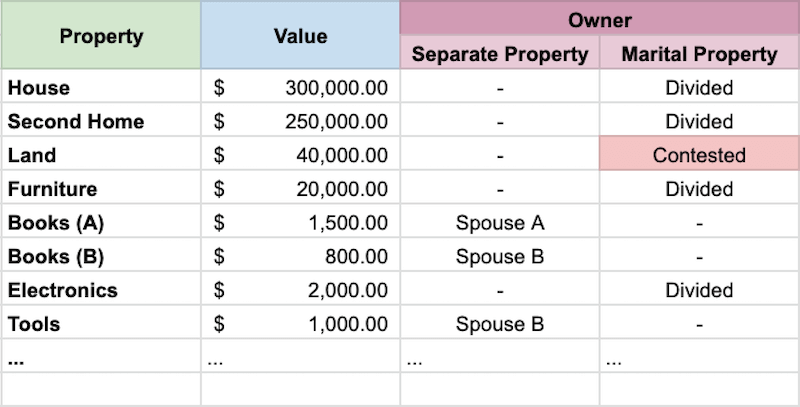Is Arizona a Community Property State?
Contents
- Is Arizona a Community Property State?
- Arizona Community Property Laws
- Determining Separate & Community Property
- Deciding What the Property is Worth
- Debts & Expenses
- Dividing Marital Property
- FAQs on Arizona Community Property
- How does community property work in Arizona?
- What are my rights if my name is not on a deed but married in Arizona?
- Is Arizona a 50-50 state for divorce?
- Is a house owned before marriage marital property in Arizona?
- What if my name is not on the house?
- Can a spouse kick you out of the house in Arizona?
- Can my husband take my 401k in a divorce?
- Does Arizona require separation before divorce?
- Does it matter who files for divorce first in Arizona?
Absolutely, and this isn’t just a trivial fact. It’s a cornerstone of how assets and debts are viewed through the lens of marriage. Unlike the rest of the country, where the nuances of asset division can be as varied as the landscape, Arizona stands firm with a clear-cut rule: what’s mine is ours, and what’s ours is split right down the middle. From the day you exchange vows, earnings, properties bought, and debts incurred aren’t just tied to the person who earned or borrowed them; they’re jointly owned.
Arizona Community Property Laws
When a couple decides to end their marriage, they must decide how they will divide their property or request that a court divide it for them if they are unable to agree. Many married couples accumulate significant assets during their marriage, and the way that it is divided can have a substantial impact on each party’s financial well-being. For this reason, it is important for anyone going through a divorce to take the time to understand Arizona’s community property laws and to speak with an attorney familiar with representing people involved in a contested divorce.
ARS 25-211. Property acquired during marriage as community property; exceptions; effect of service of a petition
A. All property acquired by either husband or wife during the marriage is the community property of the husband and wife except for property that is:
1. Acquired by gift, devise or descent.
2. Acquired after service of a petition for dissolution of marriage, legal separation or annulment if the petition results in a decree of dissolution of marriage, legal separation or annulment.B. Notwithstanding subsection A, paragraph 2, service of a petition for dissolution of marriage, legal separation or annulment does not:
1. Alter the status of preexisting community property.
2. Change the status of community property used to acquire new property or the status of that new property as community property.
3. Alter the duties and rights of either spouse with respect to the management of community property except as prescribed pursuant to section 25-315, subsection A, paragraph 1, subdivision (a).
When dividing property in a divorce, the parties or a court needs to determine whether the property is community property or separate property, determine the value of the property, and decide how to divide it.
Determining Separate & Community Property
According to Arizona’s community property laws, most assets and income acquired by either spouse during the marriage are considered community property and are owned equally by both partners. This includes wages earned by either spouse, property bought with those wages, and debts incurred during the marriage.

Separate property refers to assets that one spouse owned before getting married or gifts and inheritances received by one spouse during the marriage. These remain the individual property of the spouse who owned or received them, provided they are kept separate from community assets. Proper documentation and management are crucial to maintain the separate status of these assets to prevent them from being considered community property in a divorce.
There is a presumption under Arizona law that any assets or debts acquired during a marriage are community property, meaning property that is owned jointly by both parties. Property that was owned by one spouse prior to the marriage or is inherited or acquired as a gift is considered separate property. In addition, a party to a marriage can convert separate property to community property, and may actually do so unintentionally if he or she commingles separate property with marital property. Property may also be partially community and partially separate, a situation that often arises with retirement accounts or family-owned businesses.
Deciding What the Property is Worth
Either the spouses or the court will determine the value of the marital property. In some cases, it may be necessary to enlist the assistance of a professional appraiser for any real estate the couple owns as well as unique items such as artwork or antiques. In addition, certain assets like retirement accounts and family-owned businesses may need to be evaluated by a professional along with your divorce lawyer.

Debts & Expenses
Similar to assets, debts incurred by either spouse during the marriage are typically considered the joint responsibility of both partners, meaning each spouse is equally liable for them. This joint liability applies regardless of which spouse incurred the debt. Conversely, debts that one spouse brings into the marriage remain the responsibility of that individual spouse. This clear division aims to ensure fairness in handling financial obligations, recognizing both shared and individual responsibilities within the marriage.
Dividing Marital Property
People who are getting divorced have various options available to them in terms of dividing their assets. For example, the spouses can assign certain pieces of property to one another, one spouse could pay the other one cash to “buy out” the other’s interest in the property, or they could sell the property and split the cash received. In some cases, a couple may continue to retain certain property if it makes sense and they are able to do so. This often occurs when a couple jointly owns a profitable business.
Generally speaking, courts will divide community property evenly between the spouses. In fact, Arizona law specifically prohibits courts to consider marital misconduct when dividing property. There are cases in which a court will award more than half of the community to one spouse, however, including when the other spouse wasted community property on gambling or supporting a drug habit.
Finally, courts will also divide any marital debts between the spouses. Importantly, however, creditors are not required to recognize the debt allocation outlined in the divorce decree or separation agreement, so they may still pursue a jointly-incurred debt from either party.
FAQs on Arizona Community Property
How does community property work in Arizona?
In Arizona, all property acquired by either spouse during the marriage is considered community property, except for gifts, inheritances, or assets acquired after the service of a dissolution petition that results in a decree. Both spouses equally own community property.
What are my rights if my name is not on a deed but married in Arizona?
Even if your name is not on the deed, as a spouse, you have equal management, control, and disposition rights over community property, which includes real estate acquired during the marriage. Both spouses are generally required to consent for transactions involving real estate.
Is Arizona a 50-50 state for divorce?
Yes, Arizona divides community, joint tenancy, and other common property equitably (though not necessarily equally) during a divorce, without regard to marital misconduct. This usually results in a roughly 50-50 division unless other factors are considered.
Is a house owned before marriage marital property in Arizona?
A house owned by one spouse before the marriage is considered separate property and is not usually subject to division during a divorce. However, contributions to the mortgage from community funds during the marriage could affect this.
What if my name is not on the house?
If your name isn’t on the house but it was acquired during the marriage, it’s considered community property, and you have rights to it. If it was acquired before marriage, it may be considered separate property of your spouse, unless community funds were used towards it.
Can a spouse kick you out of the house in Arizona?
Generally, both spouses have equal rights to the marital home during the marriage. A spouse cannot unilaterally force the other out without a court order, especially if the home is considered community property.
Can my husband take my 401k in a divorce?
Retirement accounts like a 401k, accrued during the marriage, are considered community property and are subject to division upon divorce. The portion accrued before the marriage would be considered separate property.
Does Arizona require separation before divorce?
Arizona does not require a period of legal separation before filing for divorce. You can file for divorce without a preceding separation period.
Does it matter who files for divorce first in Arizona?
Legally, it doesn’t make a significant difference who files for divorce first. However, the person who files first will present their case first if the divorce goes to trial. The process and outcomes are not affected by who files first.




